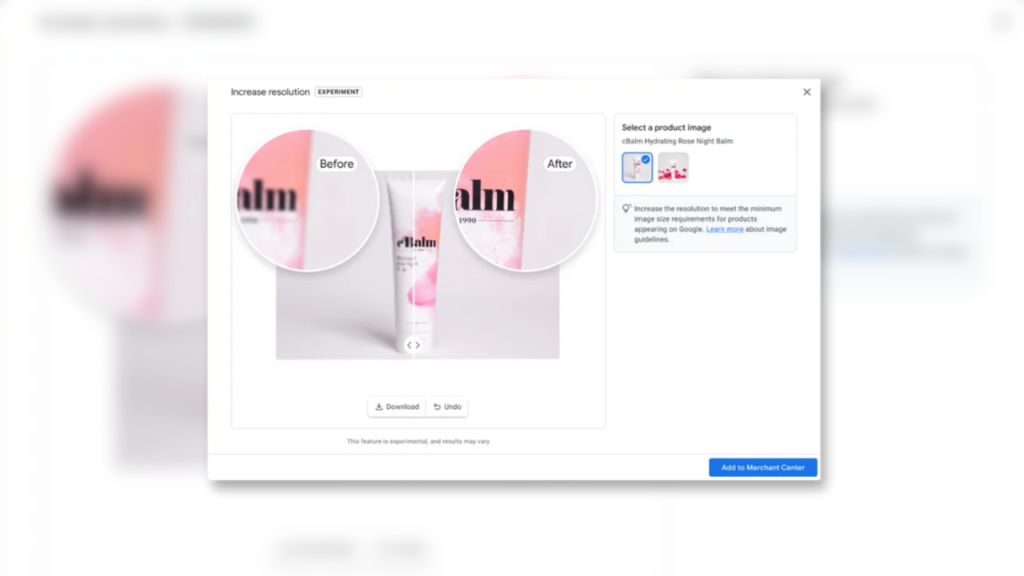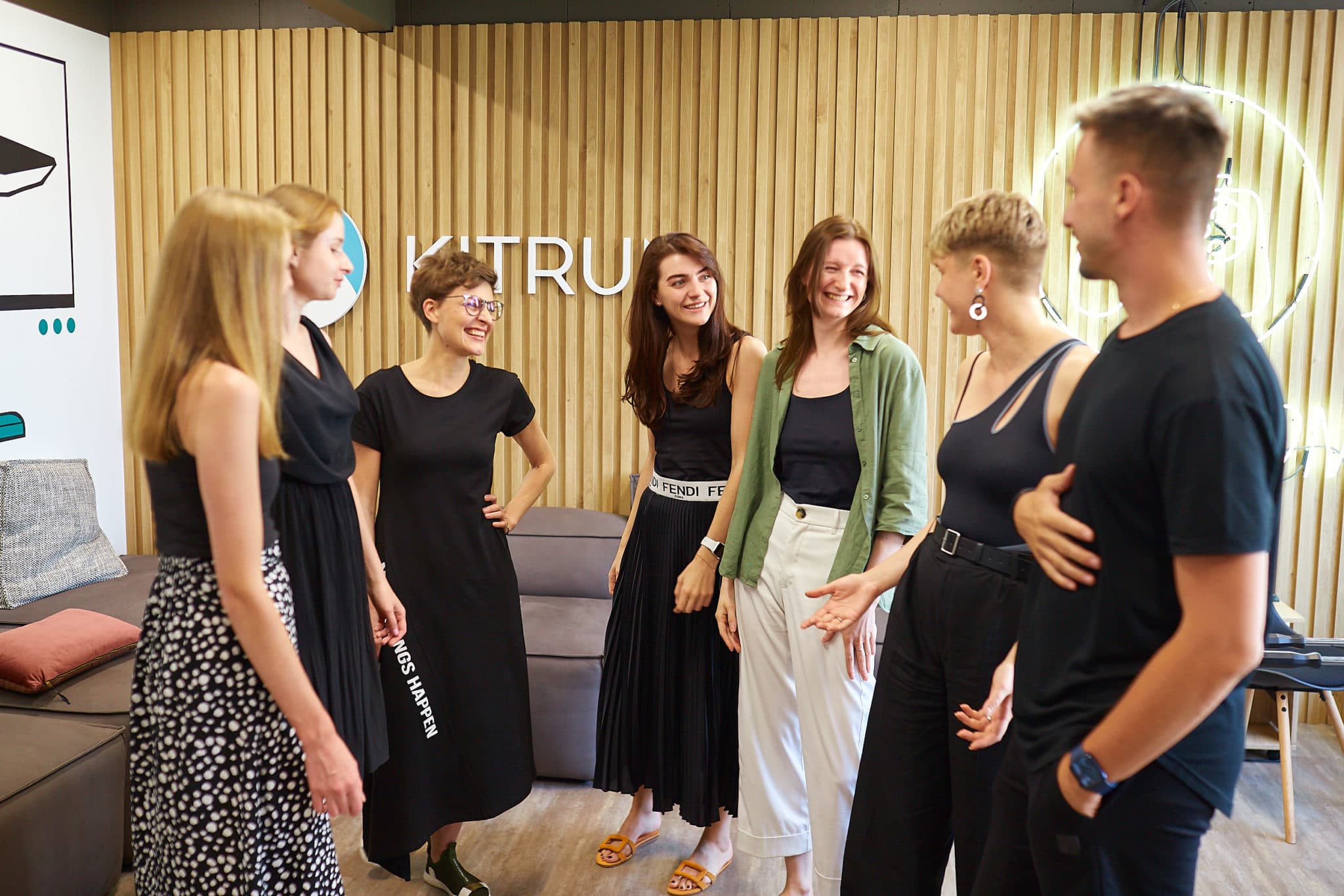Welcome to our business and tech news digest, where we’ll cover the latest in AI, security, and apps. From Google’s revolutionary product studio, Eagle Eye Networks, and Brivo’s funding boost to Twitter’s extended video uploads. So, get ready to explore the forefront of technology, security, and innovation in this week’s news roundup.
AI
Revolutionary product studio by Google unleashes the power of generative AI, empowering merchants to create stunning product imagery
Google has unveiled Product Studio, an innovative tool that empowers merchants to create captivating product imagery using the power of generative AI. This cutting-edge solution is integrated within Google’s Merchant Center Next, eliminating the need for costly and time-consuming photoshoots.
With Product Studio, brands can effortlessly generate new product visuals tailored to their unique requirements. Whether it’s showcasing a seasonal variation of a skincare product adorned with peaches and lush tropical plants or removing distracting backgrounds for a cleaner look, the possibilities are endless. This game-changing tool will initially be available to merchants in the United States, extending access to Google and YouTube app users on Shopify.

Furthermore, Google is streamlining the product listing process on Merchant Center Next by automatically populating a merchant’s product feed with relevant information extracted from their website. This automation saves merchants time and effort while providing flexibility to fine-tune the details. To enhance performance monitoring, Google integrates insights reports into the Performance tab, allowing merchants to gain valuable analytics on their best-selling products, competitor visibility, and customer engagement. As part of the phased rollout, Merchant Center Next has already begun deployment, with smaller businesses set to receive the upgrade in the coming months. Google aims to complete the global rollout by 2024, ensuring merchants worldwide can use this comprehensive and efficient e-commerce platform.
Microsoft to safeguard authenticity: AI-generated images and videos are now shielded with watermarking
Microsoft is taking steps to address the challenge of distinguishing between AI-generated images and real ones by introducing new media provenance features. The features, set to roll out in the coming months, will enable users to verify whether an image or video was generated by AI by marking and signing them with metadata about their origin. However, websites need to adopt the Coalition for Content Provenance and Authenticity (C2PA) interoperable specification to read the signature. While some players in the generative AI space have shown a willingness to embrace similar standards, the overall adoption remains uncertain. Yet, Microsoft’s move aligns with industry trends as other companies like Google, Shutterstock, and Midjourney have also taken steps to address the issue of AI-generated content.
Anthropic secures an impressive $450 million for developing cutting-edge AI assistants
Generative AI startup Anthropic led by Daniela Amodei and her brother Dario Amodei, has raised $450 million in a Series C funding round led by Spark Capital. The funding includes participation from tech giants like Google, Salesforce, and Zoom.
Anthropic aims to develop reliable and safe AI systems for a range of conversational and text-processing tasks. The company’s partnerships with Zoom and Google demonstrate its commitment to building customer-facing AI products focused on reliability, productivity, and safety. With total funding of $1.45 billion, Anthropic is competing with other AI startups and has ambitious plans to create a next-generation algorithm for AI self-teaching.
The company’s training technique, called “constitutional AI,” aims to align AI systems with human intentions and make their behavior easier to understand and adjust. Anthropic focuses on AI alignment techniques to improve AI systems’ handling of adversarial conversations and provide transparency about their behaviors and limitations.
Security
Eagle Eye Networks and Brivo soar with a massive $192 million funding boost to revolutionize cloud security
Physical cloud security companies Eagle Eye Networks and Brivo have raised a joint equity funding round of $192 million from Japanese security services giant SECOM. Eagle Eye will receive $100 million of the funding, while Brivo will receive $92 million. The companies plan to use the funds for research and development (R&D) to integrate more AI-based technology into their platforms. The funding comes when security is a growing category in the startup world, attracting investor attention.

Both companies aim to leverage cloud infrastructure to develop innovative solutions that increase automation and detection in physical security. They are targeting annual growth rates of 15% in the industry, fueled by the adoption of cloud-based solutions and AI in the physical security market. Eagle Eye is focused on automating security systems, including forensic search, while Brivo aims to enhance anomaly detection for authentication systems. The investment from SECOM, a dominant force in the Japanese market, will help the companies expand into Japan and neighboring markets.
Apps
iOS 17 transforms locked iPhones into cutting-edge smart home displays
Apple is reportedly introducing a new feature in iOS 17 that will transform locked iPhones into smart home-style displays. The feature will display information like calendar appointments, weather updates, and notifications when the phone is locked and placed horizontally. The interface will resemble smart home devices from Google and Amazon, using a dark background and bright text for better visibility. Apple aims to make iPhones more useful when not in active use, particularly when placed on a desk or nightstand. The smart home-style display will expand on the lock screen widgets introduced in iOS 16. Apple is also working on bringing this feature to iPads but typically introduces updates to iPads at a slower pace than iPhones. Other expected changes in iOS 17 include:
- Updates to the Wallet app.
- Enhancements to location services.
- A dedicated journaling app.
- Improvements to SharePlay.
- Updates to AirPlay for easier streaming.
Apple is likely to unveil iOS 17 and the smart home-style display feature at the Worldwide Developers Conference on June 5, alongside other anticipated announcements.
Twitter unleashes boundless creativity with extended two-hour video uploads for paid users
Twitter has introduced an update to its paid plan, allowing subscribers to upload videos up to two hours in length, expanding from the previous 60-minute limit. The company has also increased the video file size limit for paid users from 2 GB to 8 GB. While longer video uploads were previously only possible through the web, the iOS app also supports this feature.

Under Elon Musk’s leadership, Twitter aims to compete with platforms like YouTube and has been introducing creator-focused tools, such as raising the character limit to 10,000 for paid users and supporting text formatting. With the extended video upload feature, shows like the All In Podcast and personalities like Tucker Carlson have begun utilizing Twitter as a platform for their content. Despite facing competition and decreased user engagement, Twitter continues to evolve and expand its offerings under new CEO Linda Yaccarino.









